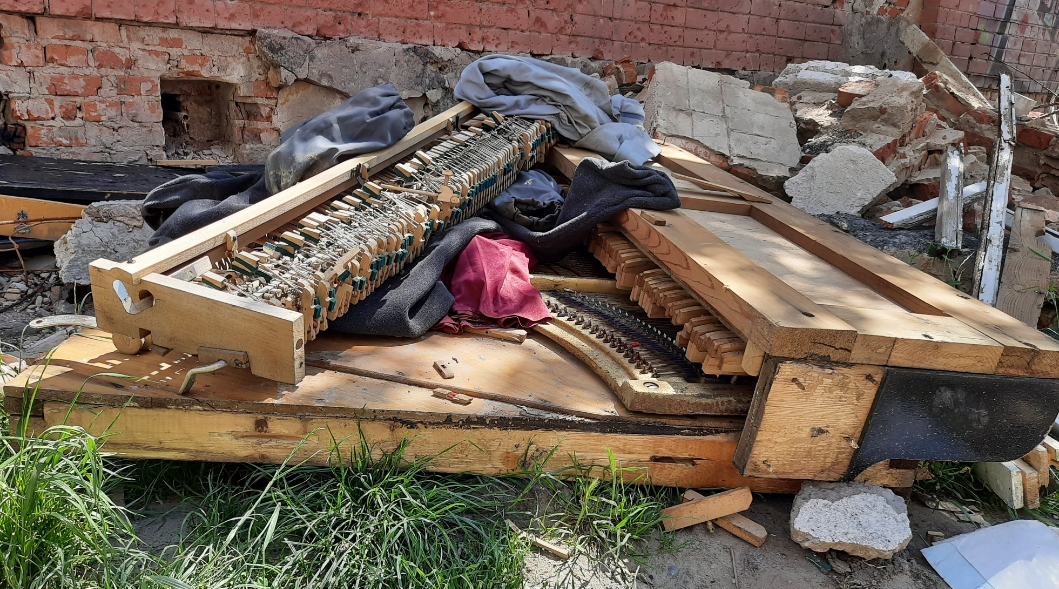Amid Death, Gloom, and Recurring Air Raid Sirens, How Do You Fight Fatigue and Fear?
The conflict threatens to engulf children and could lead to generational trauma. Laughter, play, theatre, and music help them hold on.
Stop reading this article, please. No words can truly capture the real story of children’s suffering in Ukraine. To understand the intensity of suffering that children are going through, feel the story through the eyes and experiences of a child. Consider a short exercise.
Set your alarm for four random timings between 11 pm and 5 am. Wake up every time alarms go off, run quickly to a predesignated place in your house – ideally, a basement if you have one.
While in the basement, remind yourself every moment that a missile may strike your house or destroy your neighbourhood. Try to sleep, if you can, either when you are in the basement or when you are back in the bedroom when alarms are cancelled. If you manage to sleep, get ready to be shaken by the next alarm. Repeat this for the next three to five days. Sounds challenging?
Your alarm exercise is just a simulation. You can stop it at any moment. What is happening inside Ukraine is not. Missile strikes and air raid sirens since February 24 are casting a dark shadow on children. Alarms go off at random times. There is nothing that can prepare you for this. No amount of preparation can help children in war zones endure such an unending nightmare. It is a simple truth that wars kill and maim people. Missile strikes and wars may stop one day, but the suffering doesn’t. They leave lasting scars on young minds. The emotional toll from wars is often least understood and less addressed adequately in relief efforts. Left unattended, traumatic incidents leave irreversible damage and inter-generational suffering.
Air raid sirens are early warnings of impending missile strikes. The Ukrainian government presses sirens into action every time an “enemy” fighter jet or a missile enters Ukrainian territory. At times, the whole country is on red alert, sometimes it is limited to specific locations. Since Russian troops started military offensive and missile strikes, people in Ukraine have lived through hundreds of air raid sirens.
Some air raid sirens are followed by military strikes on civilian targets, apartments and shopping centres. As I learned during a recent visit to Kyiv, how you react to air raid sirens often makes the difference between life and death. Air raid sirens were on and off throughout my three-week-long stay in Kyiv, Chernihiv and L’viv. This time, alarms went off in the early hours (on June 26) and we were in the bomb shelter instantly. A few minutes later news reports indicated that up to four explosions shook a residential area in central Kyiv, near the hotel where I was staying with my team from Plan International , which was obliterated, killing one and wounding six.
More than 11,000 civilian casualties have been reported from inside Ukraine. This includes more than 300 children. According to the Ministry of Education and Science of Ukraine, as of June 24, 1,849 educational facilities have been damaged amid ongoing hostilities and 212 have been destroyed. There are no clear reports available about civilian casualties amongst Russians. With winter around the corner, some are working against a clock to repair broken windows and damaged walls. Temperatures will drop below sub-zero. Some fear that an unprotected winter may take a heavy toll on children and their young lungs.
You are anxious and fearful in the bomb shelter, under the shadow of air raid sirens and imminent missile strikes. Each moment is a new beginning, and you learn new habits, such as taking short showers in less than three minutes. I started going to bed fully dressed and wearing socks, to save time when sirens go off in the middle of the night when you are expected to run to the bomb shelter. You also perfect how to pack essentials into a “go-bag” (your passport, trauma and first-aid kit, biscuits and water) and keep it between your bed and the door.
With an unprecedented hunger crisis unfolding in several countries worldwide and other ongoing humanitarian crises in the Horn of Africa, aid agencies are stretched and are rotating their staff. You meet new colleagues. You may often enter the bomb shelter as a group of people. However, time spent together in anxious moments and friendly chit-chats often have the power to transform a “group of people” into a true “team”.
Amid death, gloom and recurring air raid sirens, how do you fight fatigue and fear? Some Ukrainians are turning to music. In Lviv, you can spot street concerts in the city square, parks and other locations almost every day. One popular number is ‘Stefania’ by the hip hop band Kalush, which won Eurovision 2022.
I have often witnessed in conflict, war and disaster settings that children refuse to give up despite witnessing and living through mind-numbing experiences. I met a small group of children in a child-friendly space in Chernihiv. They were playing and making plans for their future. Laughter, play, and music are important for children to relax, have fun and help bounce back. Art, theatre and clowning help to create a sense of normalcy in abnormal situations.
Amid death, trauma and while living in the shadow of aid raid sirens, street music in Lviv reminds a simple truth- life is what happens between air raid sirens, sometimes unfolding in the backdrop of ‘Stefania’ or John Lennon’s “give peace a chance” played by local street bands. Life goes on.
The writer is Global Humanitarian Director at Plan International
This eyewitness account was first published in the Indian Express.

